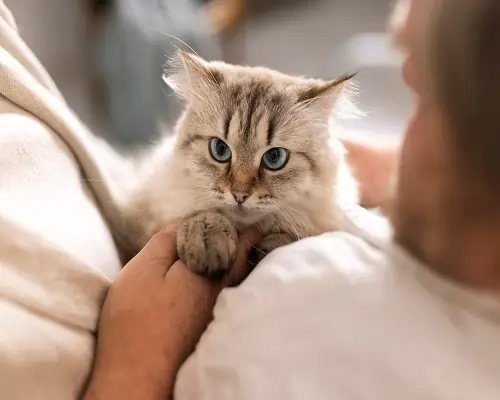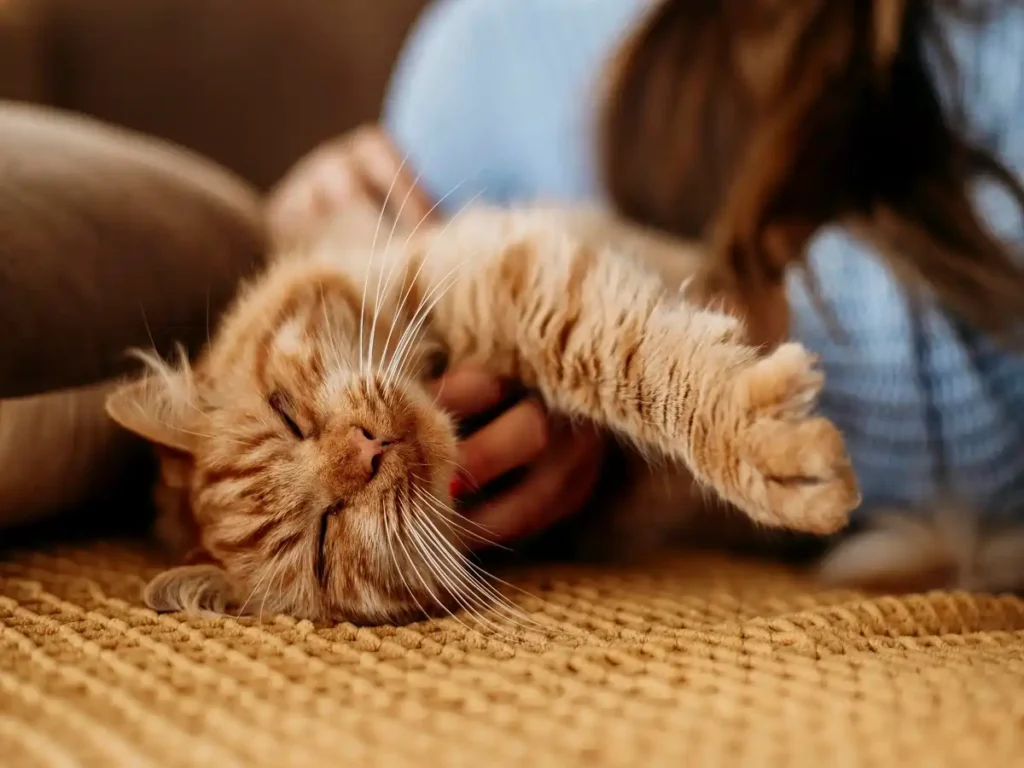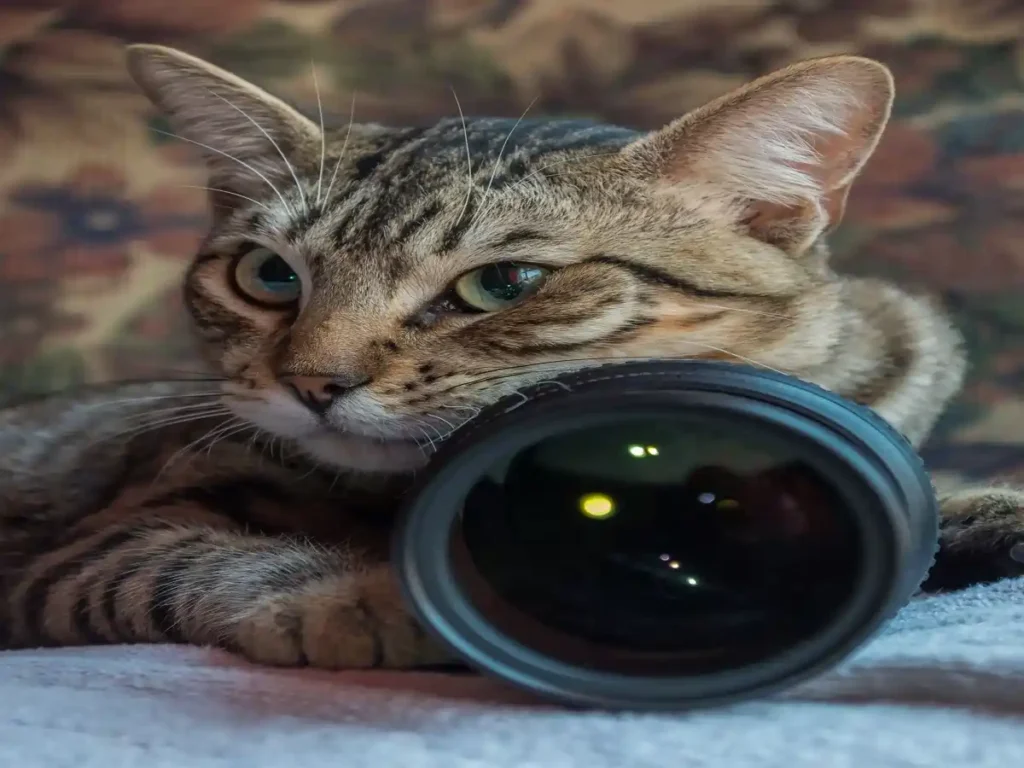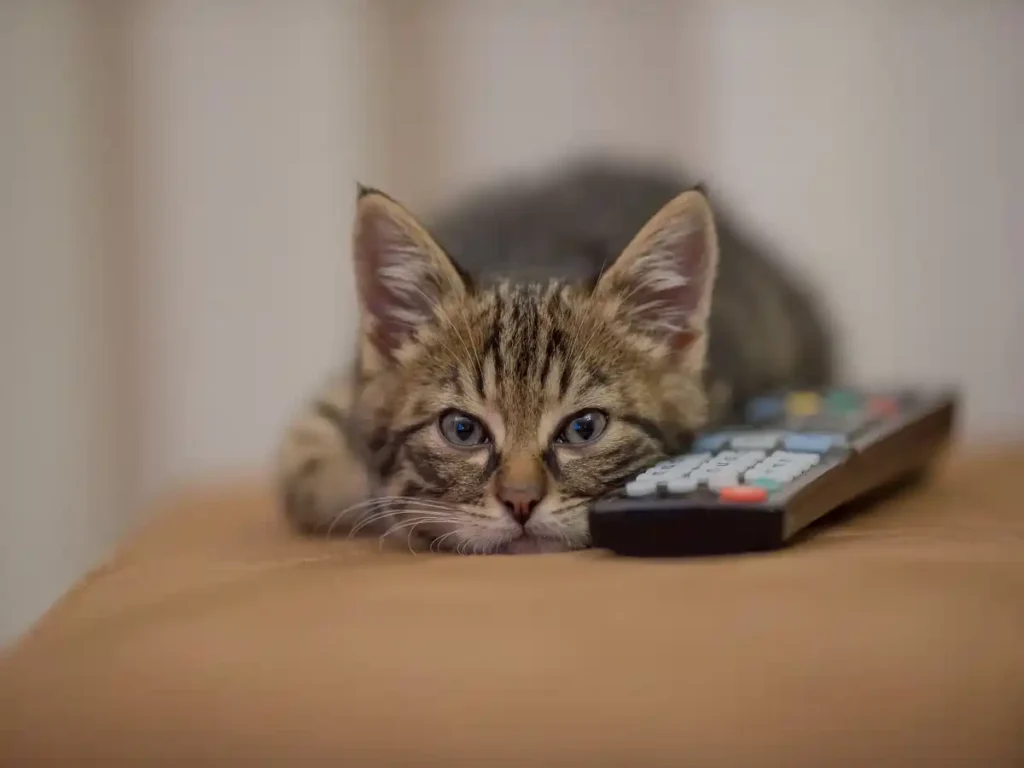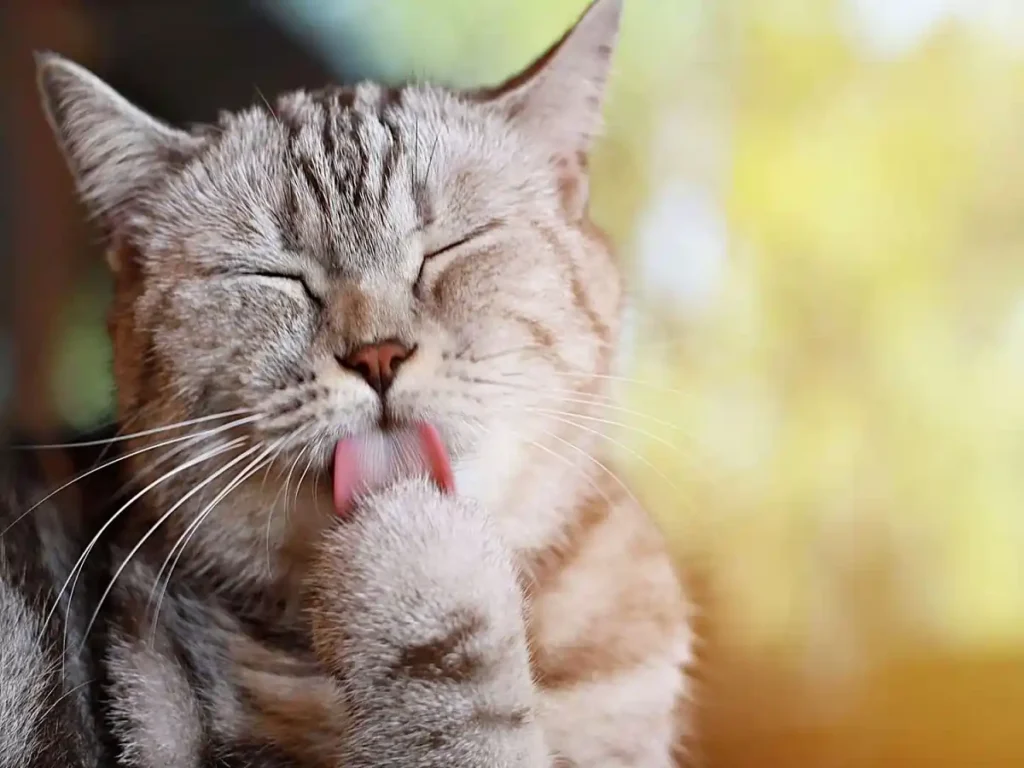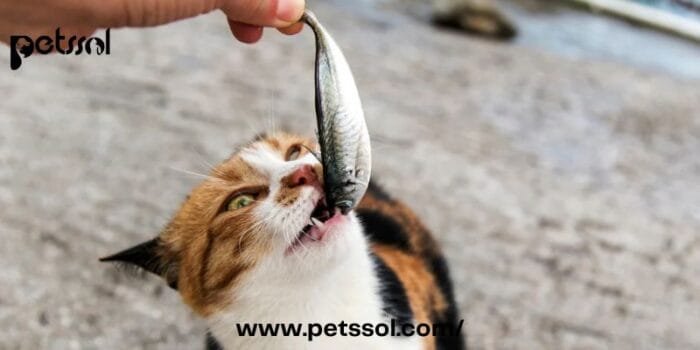Are you wondering why your cat licks your hair? It is actually normal and a cool part of how cats and humans connect. Cats have their own ways of communicating with us. Understanding these behaviours helps us bond with them better and keeps them happy. From licking our hair to marking their territory, every action tells a story. Today, we are focusing on why cats lick our hair. By understanding this, we learn more about how cats talk to us and how we can be better companions to them. Join us as we uncover the secrets behind our furry friends’ actions, sharing insights that cat lovers will appreciate.
Table of Contents
Toggle7 Reasons Why Does Your Cat Lick Your Hair
Your cat might lick your hair for different reasons, all coming from their natural behaviours. They might be grooming you because they care for you They could be curious about the salt and minerals in your hair. Sometimes, they do it to mark their territory or when they feel anxious and need comfort. It might also be a way for them to get your attention or to feel like they are back in their kitten days, seeking warmth and comfort. Basically, when your cat licks your hair, it is their way of showing their feelings and instincts within your special bond.
When your cat licks your hair, it could mean a few things:
- Grooming Behaviour: Cats groom themselves and others to bond socially. Licking your hair might be their way of bonding with you.
- Showing Affection and Trust: Licking your hair can mean your cat feels close to you and trusts you. It’s their way of showing they like being around you.
- Attention-seeking Behaviour: If your cat wants attention, licking your hair could be their way of getting it, especially if they’ve learned it gets a response from you.
- Stress or Anxiety: Sometimes, when cats feel stressed or anxious, they groom excessively. Licking your hair could be a sign of this stress.
- Exploring and Curiosity: Cats are curious and use their senses to explore. Licking your hair might be their way of getting to know you and your smell better.
- Salt and Oil Attraction: Cats might like the taste or texture of the salt and oil in your hair, so they lick it out of curiosity.
- Taste and Texture: Your hair might just feel or taste interesting to your cat, so they lick it to explore.
1. Grooming Behaviour
A cat’s grooming behaviour means it cleans itself by licking its fur. Cats spend lots of time grooming, using their rough tongues to get rid of dirt, debris, and loose hair. Grooming keeps them clean and is also relaxing and helps them bond with other cats.
When your cat licks your hair, it is a way of showing love and trust. Cats groom each other to bond, and when they groom you, it means they see you as part of their family. This strengthens the connection between you and your cat, making you feel closer.
Cats might lick your hair because it feels like fur and tastes or smells good to them. When they do this, it is their way of showing love, trust, and friendship. It shows how close you are to your cat.
2. Showing Affection and Trust
When cats show affection and trust, it means they really like and trust their human friends. Cats have different ways to show affection, like rubbing against you, purring, and grooming. When your cat licks your hair, it is a way of showing how much they care about you and trust you. It is a sign of their strong bond with you.
Cats groom each other to bond and stay connected in their group. When your cat licks your hair, it is like they are grooming you, showing their love and trust. This behaviour comes from their natural instincts to socialise and keep clean.
Your cat sees you as part of their group and feels comfy around you, so they groom you just like they would another cat. This grooming also makes both of you feel happy and relaxed, strengthening your special connection. When your cat licks your hair to show affection and trust, it is their sweet way of saying you are important to them as their human friend.
3. Attention-seeking Behaviour
When cats want attention, they do things to get noticed by their humans. They might meow, rub against you, or play around. Licking your hair is another way for them to ask for your attention and love.
Cats are smart and figure out what makes you react. If they see that licking your hair makes you pet or talk to them, they will keep doing it. So, it becomes a habit for them to lick your hair to get your attention. But it is not just about attention. They might like how your hair feels or tastes. This, along with wanting your attention, makes them keep doing it.
So, when your cat licks your hair, it is a playful way for them to connect with you and get the love they want from you, their human friend.
4. Stress or Anxiety
When cats feel stressed or anxious, they might show it by licking your hair. This could be their way of finding comfort or feeling better.
Licking can help cats relax when they are stressed. So, if your cat is feeling anxious, they might lick your hair to feel more at ease. It is like they are seeking comfort from you, their trusted friend. This licking action helps them feel better by distracting them from what’s bothering them.
Creating a peaceful environment and giving them lots of love and attention can help ease their stress and reduce their need to lick excessively.
5. Exploring and Curiosity
When a cat explores and shows curiosity, it is just being its natural self. Cats love to check out new things and sniff around to see what is interesting. So, if your cat licks your hair out of curiosity, it is probably because they are fascinated by the smell and texture.
Cats are curious creatures who like to explore using their senses, like taste and touch. Your hair, with its unique feel and smell, might catch your cat’s attention, leading them to lick it. Cats often use their mouths to figure out things around them. When they lick your hair, they are learning more about you and their surroundings.
Overall, when your cat licks your hair out of curiosity, it is just their natural way of exploring and wanting to connect with you. Letting your cat explore and providing them with opportunities to do so can make their life more exciting and bring you closer together.
Is Cat Hair-Licking a Normal Behaviour or Cause for Concern
Yes, a cat licking your hair can be considered a normal behaviour in many cases. Cats lick for different reasons like grooming, showing love, wanting attention, or just being curious. As long as the licking is not too much or causing any harm or problems, it is normal.
But if your cat licks obsessively, causing skin irritation, or hair loss, it might be a sign of a problem. In that case, it is good to talk to a vet or an expert to figure out what is going on.
Overall, while cat licking is usually fine and cute, it is good to keep an eye on it. And if you are worried, it is best to ask for help from an expert.
Should You Stop Your Cat From Licking Your Hair
Deciding whether to stop your cat from licking your hair depends on a few things like your cat’s behaviour and your own comfort. Here are some things to think about:
- Health and Safety: If the licking causes irritation or hair loss for you or your cat, it might be best to stop it to avoid any health problems.
- Bonding and Affection: Licking can be a way for your cat to show love. If you like it and it does not cause harm, it can help you bond with your cat.
- Your Preference: Your comfort matters too. If you do not like the licking, it is okay to say no and set boundaries.
- Alternative Activities: Instead of stopping the licking altogether, you can try giving your cat toys or playing with them to keep them busy.
- Observation and Monitoring: Watch your cat’s behaviour and health. If you see any signs of distress or if the licking gets worse, you might need to take action.
In the end, it is important to do what is best for both you and your cat. Think about your cat’s health, your comfort, and any concerns you have. If you are not sure, talking to a vet or an expert can help you figure out what to do.
How To Stop Your Cat From Licking Your Hair
Stopping your cat from licking your hair can be achieved through various strategies. Here are some effective methods to consider:
- Redirect Attention: When your cat tries to lick your hair, get their attention on something else. Give them a toy or play with them to keep them from licking your hair.
- Provide Alternative Activities: Make sure your cat has lots of toys, scratching posts, and fun stuff to do. This will keep them busy and less likely to lick your hair.
- Positive Reinforcement: To make your cat stop licking your hair, reward them with treats or praise when they do good things like playing with toys or sitting calmly.
- Discourage Unwanted Behaviour: If your cat keeps licking your hair even after you have tried to distract them, gently tell them “No” or “Stop.” You can also move away or put your hand between them and your hair to discourage the behaviour.
- Create Physical Barriers: If your cat bothers you by licking your hair when you’re sleeping or resting, try wearing a hat or covering your hair with a blanket. This will keep your cat from getting to your hair.
- Consult with a Veterinarian: If your cat won’t stop licking your hair too much, or if it seems like there might be a problem, talk to a vet. They can check if there is anything wrong and help you figure out what to do.
- Seek Professional Help: If you still having trouble with your cat’s hair-licking habit, think about getting help from a certified animal behaviourist. They can figure out what is going on and give you some tips to help your cat behave better.
Important Recommendation: Being consistent and patient is important when trying these methods. Your cat might take some time to get used to new behaviours, so keep at it and stay positive.
Final Words
In conclusion, deciding whether to stop your cat from licking your hair depends on different things like your cat’s behaviour, how comfortable you feel, and any health worries. Cat hair-licking can be normal and show affection, but if it is too much, you might need to step in to avoid problems. Balancing love and boundaries are key for both you and your cat’s well-being. Techniques like distracting your cat, offering other things to do, and getting expert advice can help manage their behaviour. By understanding your cat and setting clear rules, you can have a happy relationship built on love and respect.

